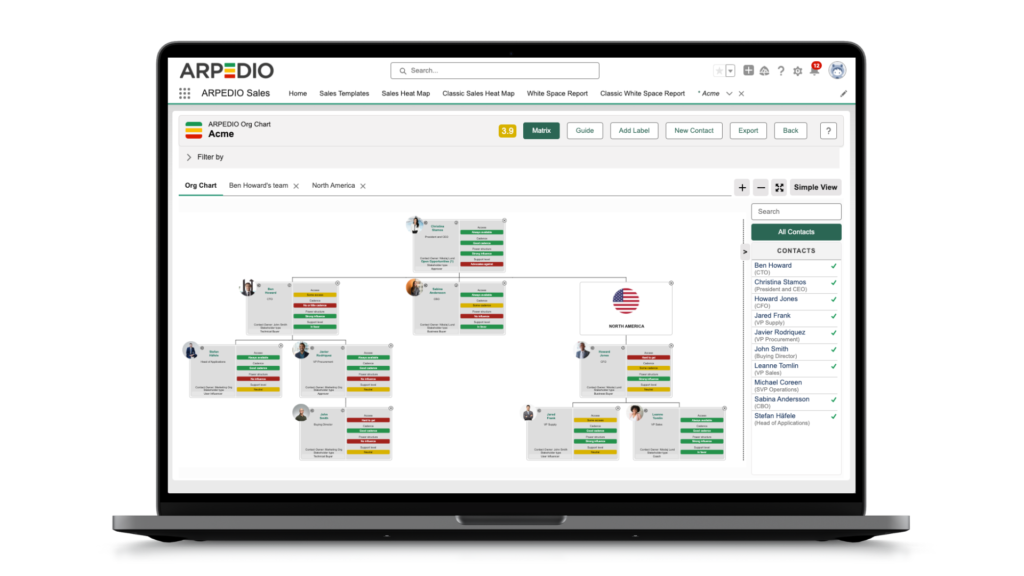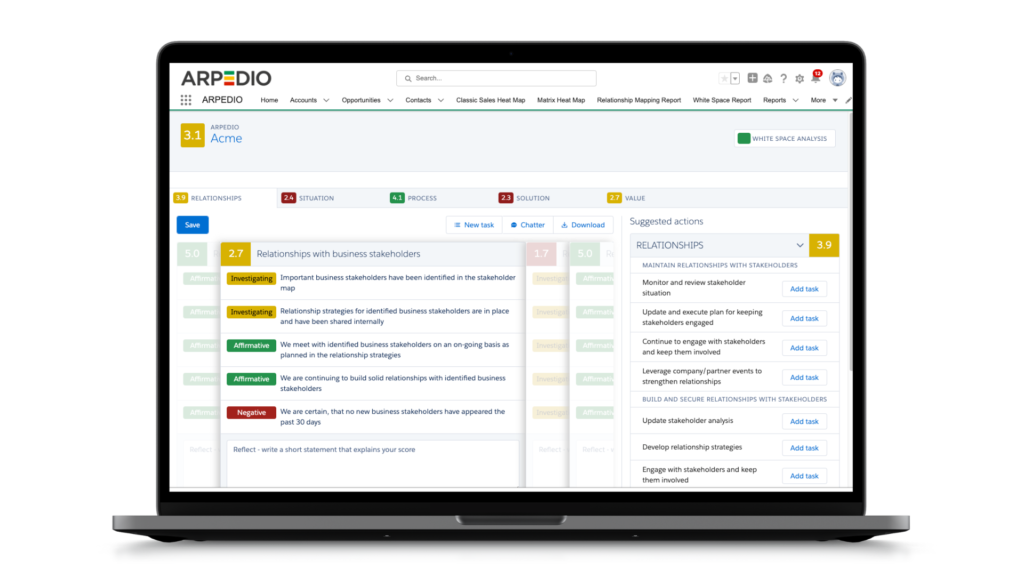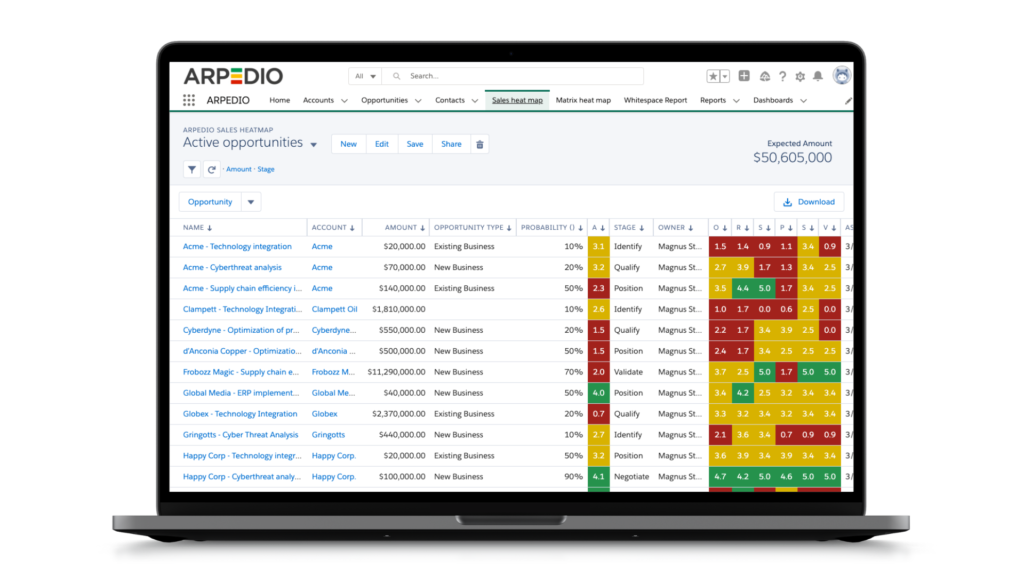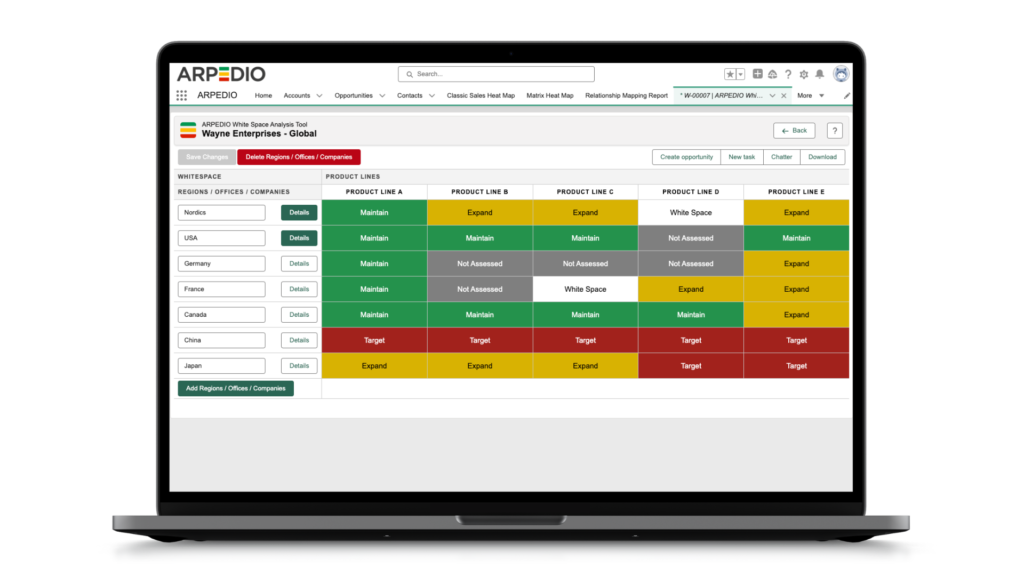Introduction to AI in Sales
In the dynamic landscape of modern sales, Artificial Intelligence (AI) is revolutionizing traditional approaches and unlocking unprecedented opportunities for growth and efficiency. AI refers to the use of advanced algorithms and machine learning techniques to automate and optimize various aspects of sales processes.
The adoption of AI in sales is paramount due to its profound impact on enhancing productivity, improving decision-making, and driving revenue growth. By leveraging AI technologies, sales teams can gain valuable insights from vast datasets, personalize customer interactions at scale, and predict future trends with greater accuracy.
In this blog post, we’ll explore the transformative potential of AI in sales, highlighting its importance and the myriad benefits it offers to businesses seeking to stay competitive in today’s digital era. Let’s delve into the world of AI and discover how it’s reshaping the sales landscape.
What is AI for Sales?
AI, or Artificial Intelligence, in the context of sales refers to the use of advanced technologies and algorithms to automate and enhance various aspects of the sales process. AI for sales involves leveraging machine learning, data analytics, and predictive modeling to drive sales performance, improve customer engagement, and optimize revenue generation.
In sales, AI applications can range from automating routine tasks like lead scoring and email outreach to providing personalized recommendations based on customer behavior and historical data. By harnessing AI capabilities, sales teams can make data-driven decisions, prioritize leads effectively, and deliver tailored experiences that resonate with prospects and customers.
AI for sales represents a paradigm shift in how businesses approach customer acquisition and relationship management. It empowers sales professionals with valuable insights, enabling them to focus on high-value activities and ultimately drive better outcomes.
In the following sections, we’ll explore the various ways AI technologies are transforming sales processes and uncover the benefits of integrating AI into your sales strategy.
AI Technologies Revolutionizing Sales
Artificial Intelligence (AI) technologies are fundamentally transforming sales operations by introducing innovative tools and capabilities that drive efficiency, effectiveness, and customer-centricity. Here are key AI technologies reshaping sales processes:
Predictive Analytics: AI-powered predictive analytics algorithms analyze historical data to forecast future sales trends, customer behaviors, and buying patterns. By leveraging predictive insights, sales teams can prioritize leads, optimize sales strategies, and anticipate customer needs.
Lead Scoring and Qualification: AI-driven lead scoring models use machine learning to evaluate lead characteristics and behaviors. This enables sales teams to focus on high-potential leads and allocate resources efficiently, leading to higher conversion rates and improved ROI.
Sales Forecasting: AI-enhanced sales forecasting combines historical data with predictive algorithms to generate accurate revenue forecasts. This empowers sales managers to make informed decisions, allocate resources effectively, and adapt strategies based on anticipated market conditions.
Chatbots and Virtual Assistants: AI-powered chatbots and virtual assistants engage with prospects in real-time, answering questions, providing information, and guiding them through the sales process. This improves customer experience, captures leads 24/7, and automates routine tasks for sales representatives.
Personalization Engines: AI-driven personalization engines analyze customer data to deliver tailored recommendations, content, and offers. This level of personalization enhances customer engagement, increases conversion rates, and strengthens customer loyalty.
Sales Automation: AI-driven sales automation tools streamline repetitive tasks such as data entry, scheduling meetings, and sending follow-up emails. This frees up sales professionals to focus on high-value activities like relationship-building and strategic selling.
These AI technologies for sales empower organizations to optimize sales processes, drive revenue growth, and adapt to evolving market demands with unprecedented precision and efficiency. Incorporating these technologies into sales strategies can yield significant competitive advantages and deliver exceptional value to customers.
Benefits of AI in Sales
AI adoption in sales offers a multitude of compelling benefits that empower businesses to thrive in competitive markets and drive sustainable growth. Let’s explore the specific advantages of leveraging AI technologies for sales:
1. Enhanced Customer Insights and Personalization
AI enables deeper customer understanding by analyzing vast datasets and generating actionable insights. This leads to personalized customer interactions, tailored recommendations, and targeted marketing campaigns that resonate with individual preferences and behaviors.
2. Improved Sales Efficiency and Productivity
By automating repetitive tasks and streamlining workflows, AI frees up sales professionals to focus on strategic activities. Sales teams can prioritize leads more effectively, optimize resource allocation, and accelerate sales cycles, resulting in increased productivity and higher conversion rates.
3. Predictive Analytics for Strategic Decision-Making
AI-powered predictive analytics forecasts sales trends and identifies potential opportunities and risks. This empowers sales leaders to make data-driven decisions, refine sales strategies, and allocate resources optimally to maximize revenue and ROI.
4. Enhanced Lead Scoring and Qualification
AI-driven lead scoring models evaluate lead characteristics and behaviors, enabling sales teams to prioritize efforts on high-quality leads with a higher likelihood of conversion. This improves sales efficiency, accelerates pipeline velocity, and boosts overall sales performance.
5. Real-Time Customer Engagement with Chatbots
AI-powered chatbots engage with prospects round-the-clock, providing instant responses to inquiries, qualifying leads, and nurturing relationships. This continuous customer engagement drives lead generation, improves response times, and enhances overall customer satisfaction.
6. Data-Driven Sales Forecasting and Planning
AI-driven sales forecasting delivers accurate revenue predictions based on historical data and market trends. This helps sales organizations anticipate demand, allocate resources effectively, and adapt strategies to changing market conditions.
7. Scalable and Adaptive Sales Strategies
AI enables scalable sales operations by automating repetitive tasks and optimizing workflows. This flexibility allows businesses to adapt quickly to market dynamics, scale operations efficiently, and stay agile in competitive environments.
In summary, AI adoption in sales empowers businesses to unlock new growth opportunities, optimize operational efficiency, and deliver exceptional customer experiences. By harnessing the power of AI technologies, organizations can transform their sales processes and achieve sustainable success in today’s digital-first marketplace.
Example of AI Sales Tools
Leveraging ARPEDIO for a Strong Data Foundation
To unleash the full potential of AI in sales, building a robust data foundation is essential. ARPEDIO offers innovative solutions that empower organizations to establish a solid data framework, enabling seamless integration with AI technologies for enhanced sales performance and efficiency.
AI Data Foundation with ARPEDIO Solutions
Account Management Software: ARPEDIO’s Account Management Software in Salesforce provides comprehensive visibility into customer accounts, capturing critical data points and relationships. This ensures a unified view of customer interactions and preferences, laying the groundwork for AI-driven customer insights and personalized engagement.
Opportunity Management Software: With ARPEDIO’s Opportunity Management Software in Salesforce, organizations gain actionable insights into sales opportunities, including lead characteristics, pipeline stages, and potential deal values. This data-rich environment enables AI-powered predictive analytics to forecast sales outcomes and prioritize strategic initiatives.
Relationship Mapping Software: ARPEDIO’s Relationship Mapping Software maps stakeholder relationships within Salesforce, uncovering key influencers and decision-makers. This deep understanding of customer connections facilitates targeted outreach and personalized communication, driving higher conversion rates and customer satisfaction.
Streamlining AI Integration with ARPEDIO Assessments
Data Standardization: ARPEDIO assessments ensure data standardization across Salesforce, enhancing data quality and reliability for AI algorithms. This enables accurate predictions and informed decision-making based on consistent data inputs.
Salesforce Integration: ARPEDIO seamlessly integrates with Salesforce, enabling organizations to leverage AI capabilities for data-driven insights and automated processes aligned with proven success metrics. This streamlined integration accelerates AI adoption and drives tangible business outcomes.
By leveraging ARPEDIO’s solutions, organizations can establish a strong data foundation that fuels AI-driven sales strategies. This empowers sales teams to optimize customer interactions, drive revenue growth, and achieve sustained competitive advantages in today’s AI-powered sales landscape.
Challenges and Considerations in AI Sales
Implementing AI in sales presents unique challenges and considerations that organizations must address to maximize its effectiveness and ROI. Let’s explore key challenges and strategies for navigating them:
1. Data Quality and Integration Complexity
- Challenge: AI effectiveness relies on high-quality data. Ensuring data accuracy, consistency, and integration across systems can be complex, especially in heterogeneous data environments.
- Consideration: Invest in data cleansing and standardization processes to improve data quality. Leverage integration platforms to facilitate seamless data synchronization and accessibility for AI algorithms.
2. Change Management and Adoption
- Challenge: Resistance to change and adoption hurdles can impede AI implementation. Sales teams may require training and support to embrace AI technologies effectively.
- Consideration: Develop a change management strategy that emphasizes the benefits of AI for sales performance and productivity. Provide comprehensive training and ongoing support to empower sales professionals to leverage AI tools confidently.
3. Ethical and Regulatory Compliance
- Challenge: AI applications in sales raise ethical concerns related to data privacy, bias, and transparency. Adhering to regulatory requirements and ethical standards is critical.
- Consideration: Implement robust governance frameworks and AI ethics guidelines to ensure responsible AI usage. Regularly audit AI models for bias and transparency, and prioritize data privacy and compliance in AI initiatives.
4. Scalability and Resource Allocation
- Challenge: Scaling AI initiatives across the organization requires adequate resources, including skilled talent, infrastructure, and budget allocation.
- Consideration: Develop a phased approach to AI implementation, starting with pilot projects to demonstrate value and secure executive buy-in. Prioritize resource allocation based on AI project priorities and expected ROI.
5. Interpretability and Trust in AI Outputs
- Challenge: AI-driven insights and recommendations must be interpretable and trustworthy for sales professionals to act upon them confidently.
- Consideration: Implement explainable AI techniques that provide transparent explanations for AI outputs and recommendations. Foster a culture of trust and collaboration between AI systems and human decision-makers.
Addressing these challenges and considerations proactively is essential for successful AI adoption in sales. By mitigating risks and optimizing strategies, organizations can harness the full potential of AI technologies to drive sales effectiveness, improve customer relationships, and achieve business growth.
Future Trends and Innovations in AI for Sales
The future of AI in sales holds exciting prospects, with ongoing advancements poised to reshape sales strategies and customer engagement. Let’s delve into emerging trends and innovations in AI-driven sales.
Predictive Analytics and Prescriptive Insights: AI-powered predictive analytics will continue to evolve, enabling sales teams to anticipate customer behavior, identify emerging trends, and proactively address sales opportunities. Prescriptive insights derived from AI models will guide sales actions, recommending optimal next steps for maximizing revenue.
Hyper-Personalization at Scale: AI will drive hyper-personalization in sales interactions, allowing organizations to tailor messaging, product recommendations, and pricing dynamically based on individual customer preferences and behaviors. Automated personalization at scale will enhance customer engagement and satisfaction.
AI-Powered Sales Assistants: Virtual sales assistants powered by AI will become more sophisticated, assisting sales professionals with routine tasks such as lead prioritization, follow-ups, and data entry. These assistants will leverage natural language processing (NLP) to facilitate seamless communication and streamline sales workflows.
Enhanced Customer Journey Mapping: AI will enable comprehensive customer journey mapping, leveraging historical data and real-time interactions to optimize touchpoints and enhance customer experiences. Sales teams will gain deeper insights into customer needs and pain points, driving targeted engagement strategies.
Integration of AI with IoT and Big Data: The convergence of AI, Internet of Things (IoT), and big data analytics will unlock new possibilities in sales optimization. AI algorithms will leverage IoT-generated data to deliver real-time insights into product usage, performance, and customer preferences, driving proactive sales strategies.
Ethical AI Practices and Governance: As AI adoption accelerates, ethical considerations and governance frameworks will become paramount. Organizations will prioritize responsible AI practices, ensuring transparency, fairness, and accountability in AI-driven sales initiatives.
Continued Growth of AI Ecosystem: The AI ecosystem will expand rapidly, with increased collaboration between AI solution providers, Salesforce platforms like ARPEDIO, and sales organizations. This ecosystem growth will fuel innovation and democratize AI adoption across industries.
Embracing these future trends and innovations will empower sales teams to unlock AI’s transformative potential, driving revenue growth, fostering customer relationships, and shaping the future of sales strategies. Stay ahead of the curve by leveraging AI technologies to redefine sales excellence in the digital era.
Conclusion: Embracing AI for Sales Success
Incorporating AI into sales processes represents a transformative opportunity for organizations to enhance efficiency, drive revenue growth, and deliver exceptional customer experiences. As AI technologies continue to evolve, sales teams must embrace innovation and adapt to emerging trends to stay competitive in today’s dynamic business landscape.
By leveraging AI-driven insights, automation, and predictive analytics, sales professionals can unlock new levels of productivity and effectiveness. Harnessing the power of AI solutions like those offered by ARPEDIO lays a strong data foundation, enabling organizations to make data-driven decisions and optimize sales strategies.
As we look toward the future, the convergence of AI and sales promises continued innovation, hyper-personalization, and ethical AI practices. Embracing these advancements will position sales teams for success in delivering value, fostering customer loyalty, and driving sustainable growth.
Stay informed, agile, and proactive in integrating AI into your sales processes to achieve unparalleled success in the evolving digital landscape. The future of AI in sales is bright, and the time to harness its potential is now. Unlock new opportunities and redefine sales excellence with AI-powered strategies.











